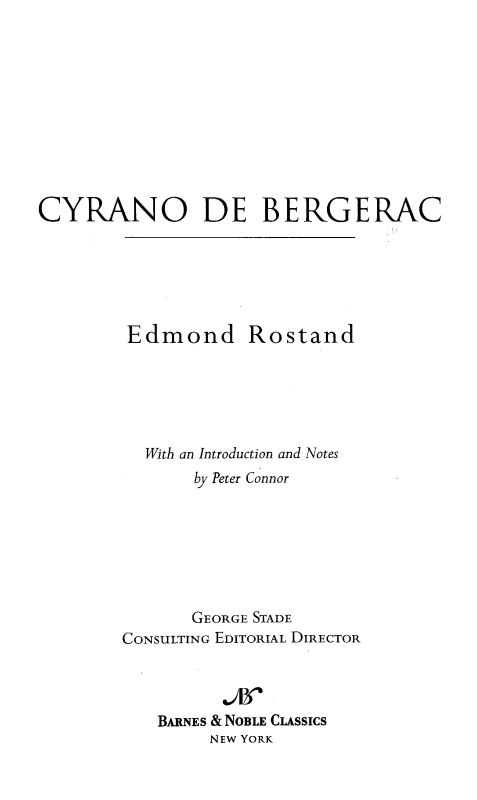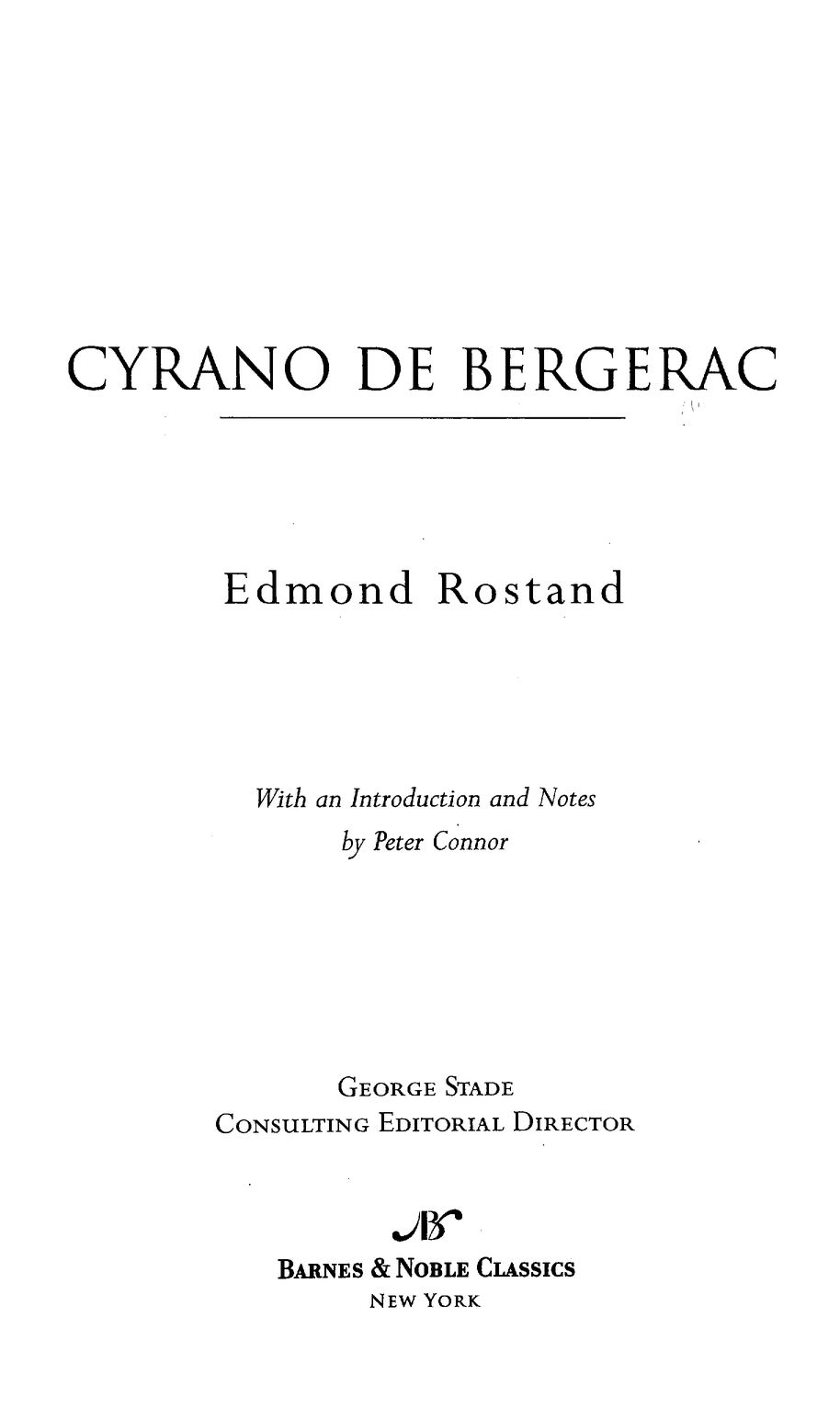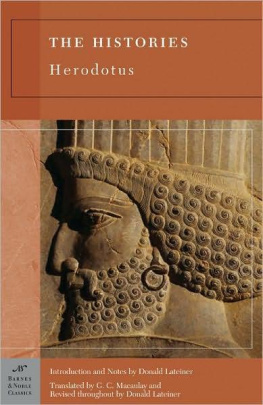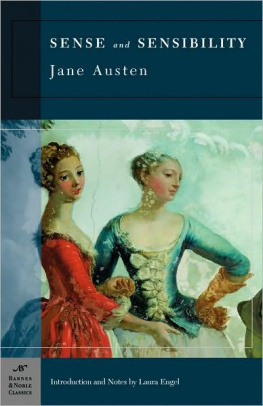
Table of Contents
From the Pages of
CYRANO DE BERGERAC
Hat with triple feather, doublet with twice-triple skirt, cloak which his interminable rapier lifts up behind, with pomp, like the insolent tail of a cock; prouder than all the Artabans that Gascony ever bred, he goes about in his stiff Punchinello ruff, airing a nose.... Ah, gentlemen, what a nose is that! (page 16)
His blade is half the shears of Fate! (page 16)
Face about, I say ... or else, tell me why you are looking at my nose.(page 27)
Be it known to you that I am proud, proud of such an appendage! inasmuch as a great nose is properly the index of an affable, kindly, courteous man, witty, liberal, brave, such as I am! (page 28)
It is a crag!... a peak! ... a promontory! ... A promontory, did I say? ... It is a peninsula! (page 29)
Of wit, O most pitiable of objects made by God, you never had a rudiment, and of letters, you have just those that are needed to spell fool! (page 30)
My foppery is of the inner man. (page 30)
I am without gloves? ... a mighty matter! I only had one left, of a very ancient pair, and even that became a burden to me ... I left it in somebodys face. (page 31)
My rapier prickles like a foot asleep! (page 31)
As I follow with my eyes some woman passing with some cavalier, I think how dear would I hold having to walk beside me, linked like that, slowly, in the soft moonlight, such a one! I kindleI forgetand then... then suddenly I see the shadow of my profile upon the garden-wall! (page 38)
To displease is my pleasure. I love that one should hate me. Dear friend, if you but knew how much better a man walks under the exciting fire of hostile eyes, and how amused he may become over the spots on his doublet, spattered by Envy and Cowardice! (page 70)
Eloquence I will lend you! ... And you, to me, shall lend all-conquering physical charm... and between us we will compose a hero of romance! (page 75)
Roxane shall not have disillusions! Tell me, shall we win her heart, we two as one? will you submit to feel, transmitted from my leather doublet into your doublet stitched with silk, the soul I wish to share?
(page 76)
You shall never find uspoets!without epistles in our pockets to the Chlorises ... of our imagining! (page 76)
My heart always cowers behind the defence of my wit. (page 93)
Your name is in my heart the golden clapper in a bell; and as I know no rest, Roxane, always the heart is shaken, and ever rings your name!
(page 94)
Terrible and jealous, is love ... with all its mournful frenzy!
(page 94)
The madman is erudite. (page 104)
I came to implore your pardonas it is fitting, for we are both perhaps about to die!your pardon for having done you the wrong, at first, in my shallowness, of loving you... for mere looking!
(page 132)
While I have stood below in darkness, others have climbed to gather the kiss and glory! (page 158)
Thanks to you there has passed across my life the rustle of a womans gown. (page 158)

EDMOND ROSTAND
Edmond Rostand was born on May I, 1868, in Marseille to wealthy, literary-minded parents. His father, an avid essayist, versifier, and translator of Catullus, instilled in young Edmond what would be a lifetime devotion to such literary masters as Miguel de Cervantes, William Shakespeare, and Victor Hugo. Indeed, although Rostand lived well into the beginning of the modern age, many scholars contend that he carried on the romantic tradition of Hugo and other writers.
Edmond completed his secondary education at the College Stanislas in Paris, where he showed his considerable literary talent, then studied law, which he never practiced. While hiking in the Pyrenees in 1888 he met his future wife, Rosemonde Gerard, an aspiring poet of moderate success. Rosemondes family helped Rostands early career immensely: He wrote his first play, a four-act vaudeville-style piece called Le Gant rouge (The Red Glove), with her half-brother, William Lee, and published his well-received first collection of verse, Les Musardises, with the help of Gerards godfather, the poet Leconte de Lisle.
Cyrano de Bergerac premiered to a rapturous reception in 1897 and remains one of the great classics of nineteenth-century France. The flamboyant character Cyrano, rural hero and national champion, was a charismatic representative of the grandeur of France and helped a wounded nation recover from defeat in the Franco-Prussian War, the loss of Alsace-Lorraine, and a series of political and military scandals that included the Dreyfus Affair. Rostand achieved success with other notable productionsincluding La Princesse lointaine (The Faraway Princess) and La Samaritaine (The Woman of Samaria), both with the great actress Sarah Bernhardt in the leading rolebut Cyrano remains the work for which Rostand is known. He spent most of his last twenty years in near-retirement at his home in the Pyrenees and died of Spanish flu in 1918 .
The World of Edmond Rostand and
CYRANO DE BERGERAC
| 1619 | Savinien de Cyrano, the real Cyrano de Bergerac, is born in Paris. |
| 1640 | While fighting for France in the Thirty Years War, de Bergerac receives a stab wound to the throat during the siege of the town of Arras in northern France and leaves the military. |
| 1641 | Cyrano begins studying at the College de Lisieux under the philosopher Pierre Gassendi, known for his libertine views. |
| 1654 | Two of Cyranos plays, La Mort dAgrippine (The Death ofAgrippine) and Le Pdant jou (The Pedant Imitated), are published. |
| 1655 | Cyrano dies on July 28, possibly of injuries sustained when a scrap of wood falls from a building and strikes him on the head (some believe the accident was planned) or from complications of a venereal disease. |
| 1657 | Cyranos Histoire comique des tats et empires de la lune (Comical History of the States and Empires of the Moon) appears posthumously . In this and a companion volume, Histoire comique des tats et empires de la soleil (Comical History of the States and Empires of the Sun), published in 1662, he satirizes contemporary socety and the prevailing belief that Earth is the center of the universe. |
| 1858 | Cyranos works are published for the first time since the seventeenth century. |
| 1868 | Edmond Rostand is born into a well-off family in Marseille on May 1. |
| 1872 | De Bergeracs tragedy Le Mort d Agrippine is revived for one performance in Paris. |
| 1878 | Rostand begins his studies at the lycee of Marseille. |
| 1884 | The Rostands move to Paris, and Edmond continues his studies at the College Stanislas. Miguel de Cervantes, William Shakespeare, Victor Hugo, and Theodore de Banville are his literary heroes. |
| 1887 | The Acadmie de Marseille gives Rostand top honors for his entry in the essay contest Deux romanciers de Provence: Honor dUrf et Emile Zola (Two Provencal Romantic Writers: Honor d Urf and Emile Zola). |
| 1888 | While on vacation in the Pyrenees, Rostand meets aspiring poet Rosemonde Gerard, goddaughter of the poet Leconte de Lisle, and falls in love. |








